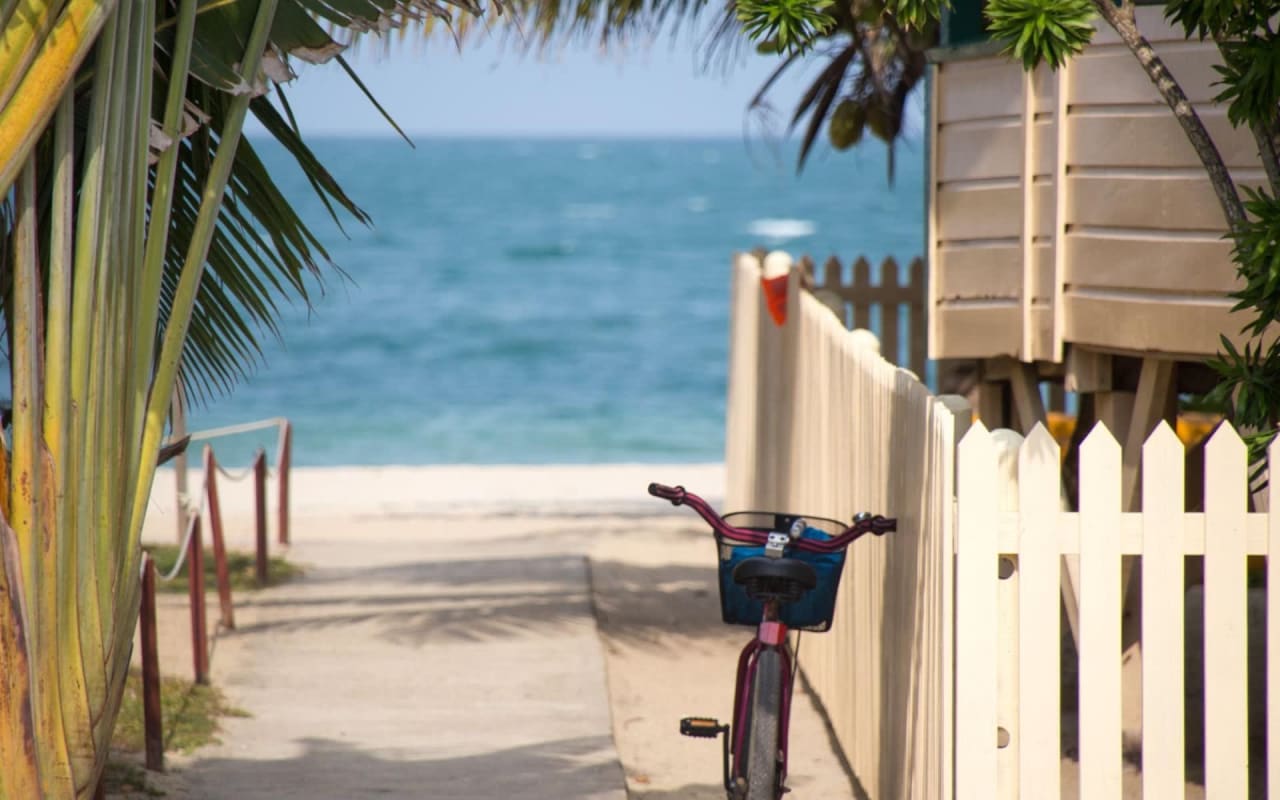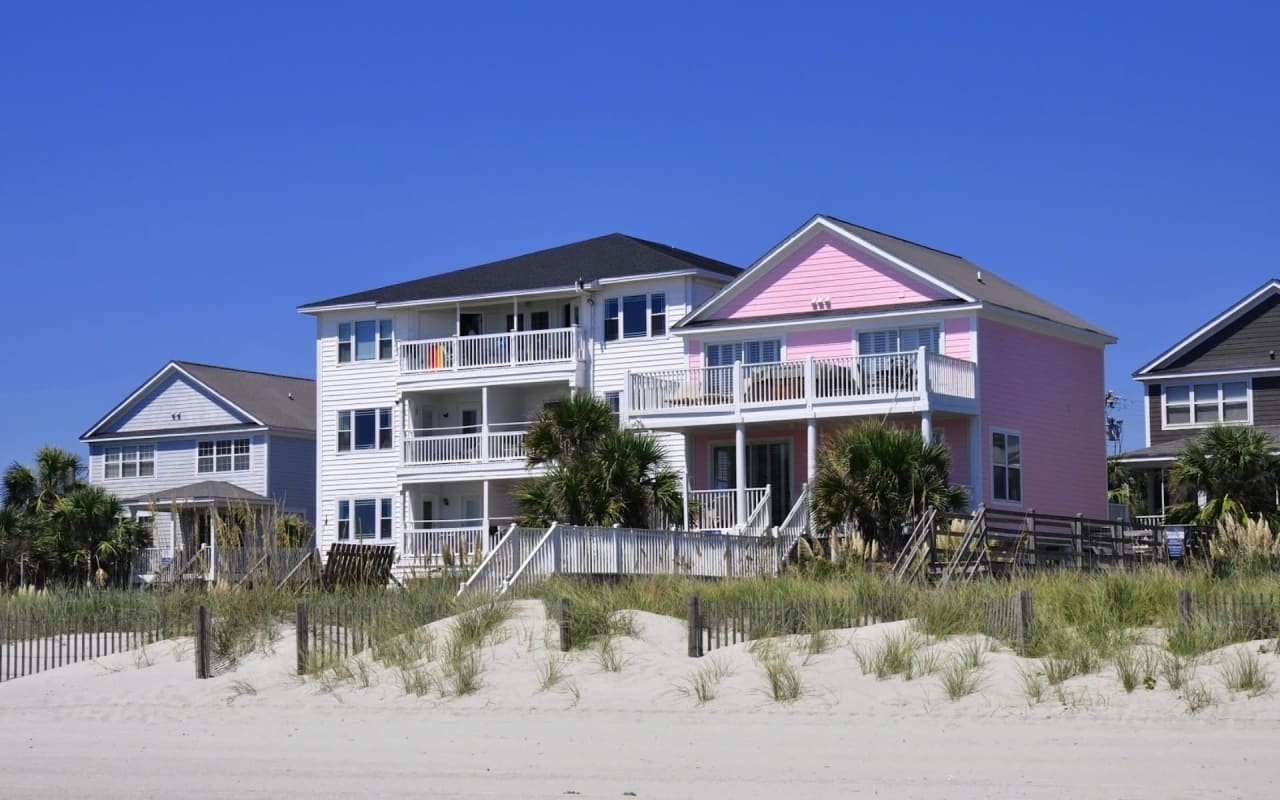Buying a beach house may seem like a dream come true, whether you plan to use the home for your own enjoyment or rent it to vacationers. Especially since the start of the pandemic and the rise of the remote work situation, the demand for beach houses has increased. More people are implementing the hybrid work model into their lifestyle and splitting their time between the city and a vacation location.
There are pros and cons to owning a beach house and managing the house if it will be your second home. Read on for insights into buying and maintaining an oceanfront beach house.
YEAR-ROUND VACATION ACCOMMODATIONS
One of the most significant advantages of owning a beach house is that you’ll always have accommodations when you’re vacationing. Beach rentals can be very expensive, and the cost of renting one multiplies during the high season. Having your own vacation home means you can stay there anytime, regardless of the season. And you can stay for any length of time — from a few days to several months. You’ll also have accommodations for friends and family who visit.
RENTAL INCOME
Is now a good time to buy a beach house? Yes. Beach houses generally earn higher rental income in comparison to rental properties that aren’t near the beach or used for full-time housing. This is a key incentive for people to invest in a beach house. Vacation rental sites such as Airbnb and VRBO have made home rentals more popular. People are opting for the “at home” appeal of rental properties over staying in hotel rooms. They also love having full house amenities where they can cook in a kitchen, dine on a patio, and enjoy time together in the living room.
APPRECIATION AND RESALE VALUE
Is a beach house a good investment? Just like any other property, beach houses appreciate in value. Demand in the beach housing market has always been incredibly high, so beach houses are typically great investments. They’re priced higher than traditional properties, but that value tends to increase at a faster rate. If you hold onto your beach house for several years, you’ll be rewarded with a higher selling price.
MAINTENANCE COSTS
With higher rental and resale values, beach houses also tend to incur higher maintenance costs. You have to consider the HOA fees and regulations, general property management costs, cleaning services, and landscaping. If you don’t live nearby and plan to rent the house consistently, you will need to hire a person or agency to manage the rental transactions. Fees for all these services can be expensive and add up. Remember that you’ll have to maintain the home when no one is staying there. And as with any home, repairs and upgrades are occasionally needed.
INSURANCE RATES
Home insurance is also higher for beach houses. Beachside locations are more at risk for flooding and hurricanes. Before buying a beach house, work with your realtor to research the building materials and foundation of the property, checking that the materials are flood resistant. You might also consider a home on a hill or higher elevation. Because of their proximity to the ocean, these properties may require flood insurance even if they aren’t located in a designated flood zone.
PROXIMITY TO THE WATER

Photo courtesy of Unsplash
One of the first questions buyers interested in a beach house ask is, “How close is it to the water?” The convenience of being steps away from the ocean and the incredible seaside views will increase the property’s rental potential and resale value. However, it will also increase insurance rates. The closer a beach house is to the ocean, the more critical it is for you to research the building materials and foundation.
CONSIDER SEASONAL CHANGES
Beachside locations don’t always offer pleasant weather year-round. While some locations might be more prone to storms and bad weather during certain times of the year, others can have unbearably hot and humid seasons. Because of this, rental values will fluctuate. Keep in mind that there may be a few months each year when you won’t have many renters and rental income.
A HEALTHY LIFESTYLE

Photo courtesy of Unsplash
People living in beachside towns tend to spend more time outdoors. Fresh air, warm temperatures, vitamin D from the sun, and a more active lifestyle are among the health benefits that can come with owning a beach house. Beach towns often offer a plethora of recreational activities. In addition to water sports such as swimming, paddle boarding, and surfing, you’re sure to find beachside yoga classes, running clubs, and training locations for triathlons.
KNOW YOUR NEIGHBORS
Before buying a beach house, meet the potential neighbors. If you’re looking for a quiet, peaceful getaway place, you will want to steer clear of a home of late-night partiers. If you intend to spend significant time in your beach house with children, look for neighborhoods who have children similar in age. Explore the city’s community newspaper for insights and information about the different neighborhoods.
UNDERSTAND RENTAL RESTRICTIONS
Rental restrictions are becoming more common in Homeowner Associations. In some areas, the HOA does not allow rentals for less than 30 days or bans rentals altogether. There are also restrictions that mandate you must stay in the house and rent only a portion of it, or you must reside in the same city as the rental property. Local governments also regulate rental properties. Work with your realtor to learn what the restrictions are; there can be steep fines for violations.
WORK WITH AN EXPERT REALTOR
A local and experienced real estate agent will know the ins and out of buying a beach house and what it’s like to live in the area full-time. Specializing in Virginia Beach, Norfolk, and Chesapeake real estate, Brandon Carney can answer any questions you may have about these communities. He can guide you successfully through a beach house purchase, whether it’ll be for personal use, as a rental property, or both.





